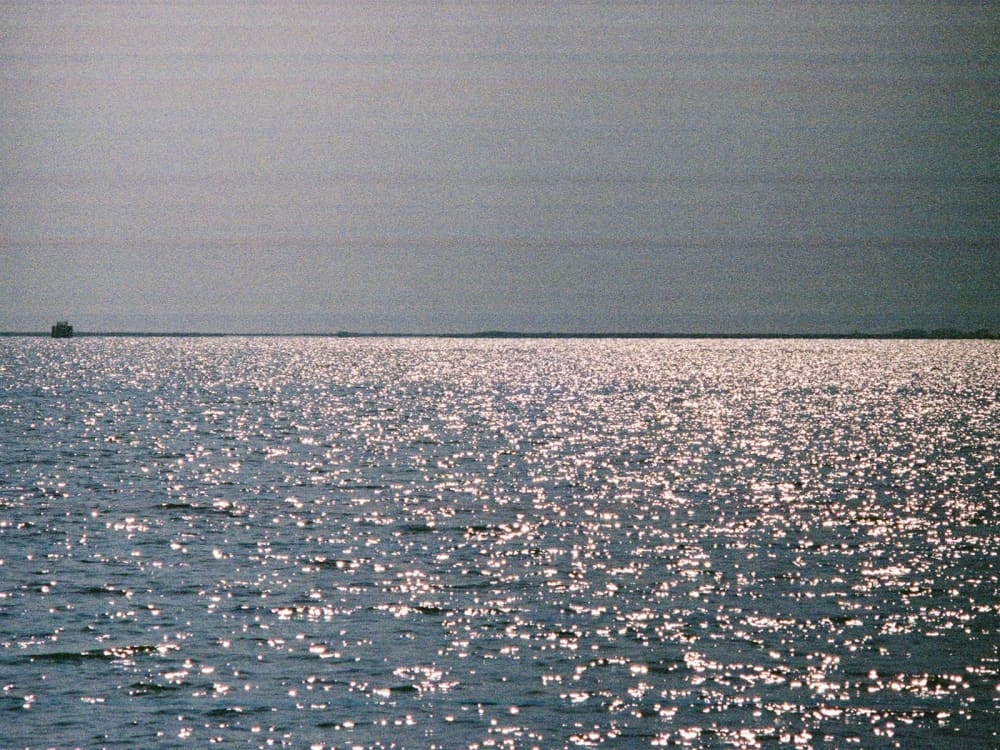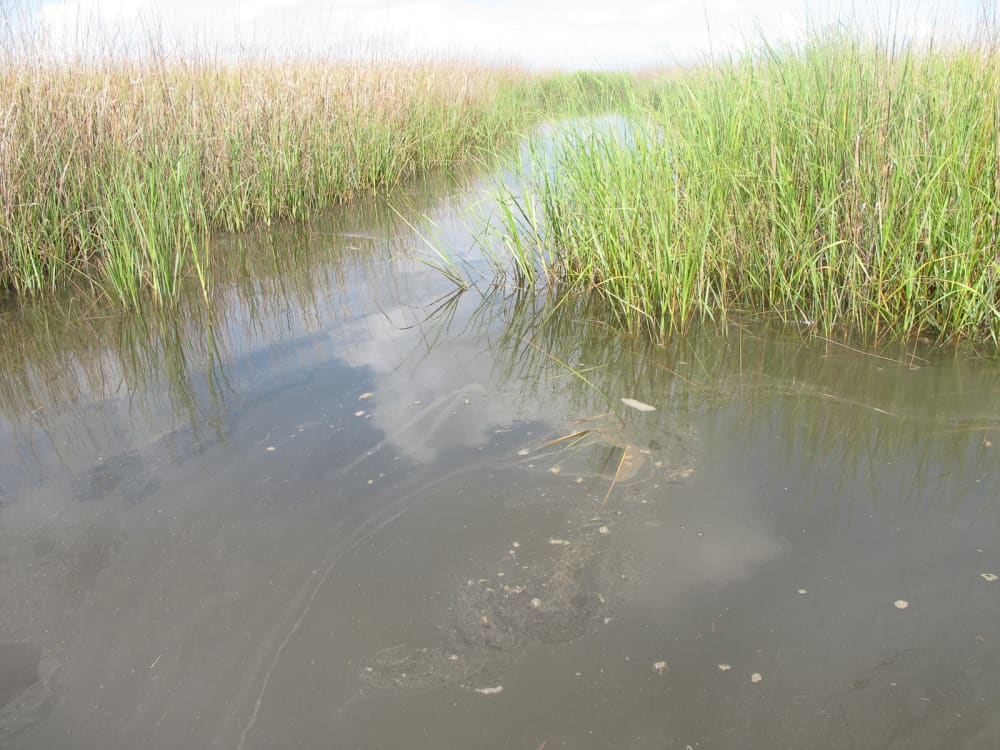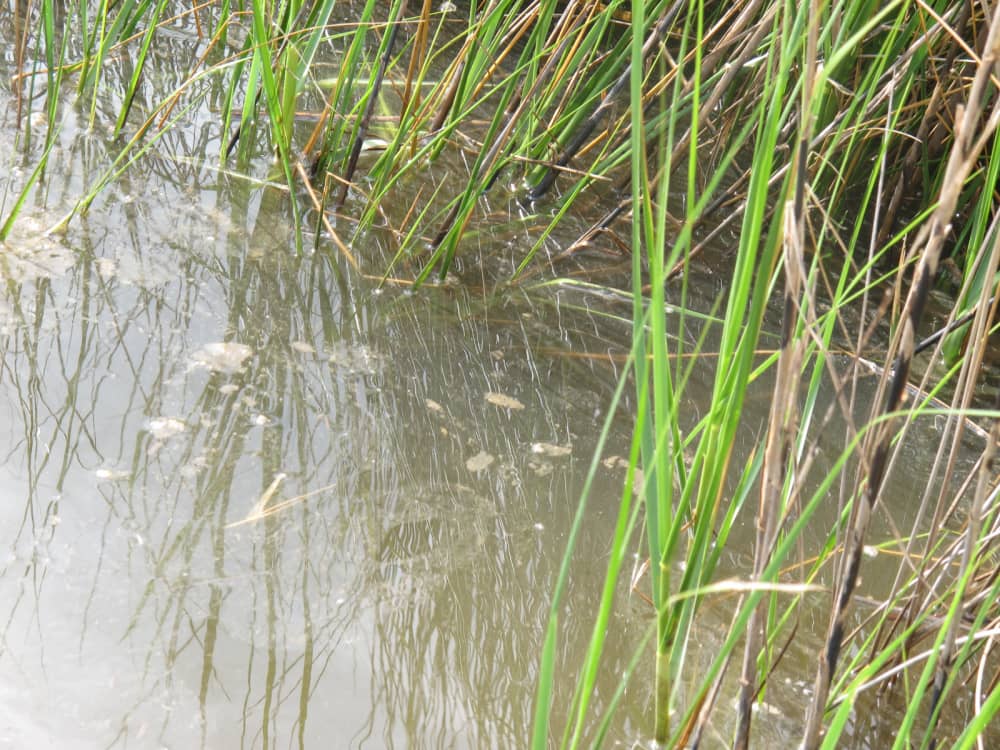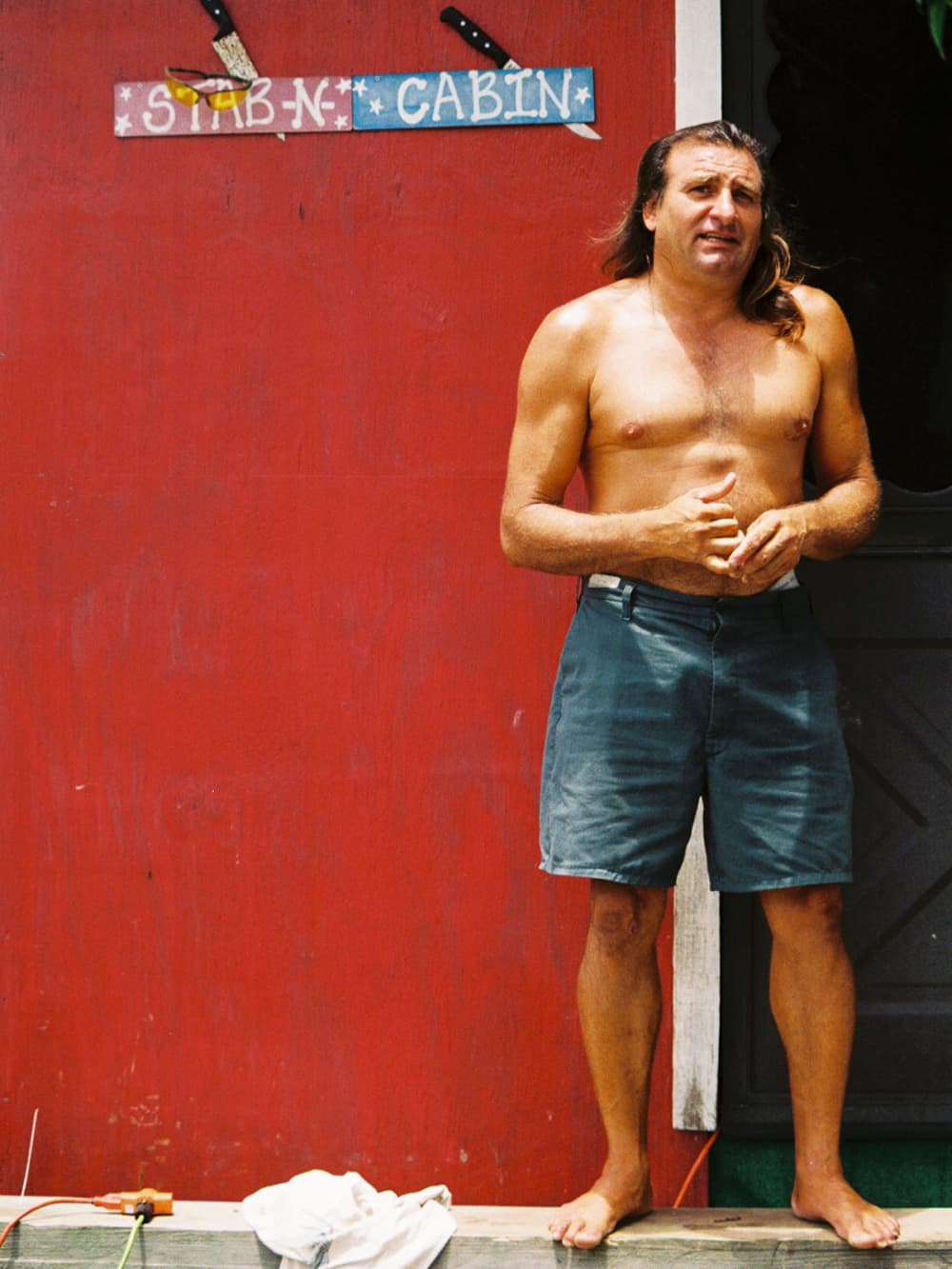Tattered Jeans
The real story of dispersant in the Gulf and its magic trick of horrors
 The Gulf's waters — and what exactly is in them — are still more than murky.Photo by Katie Oxford
The Gulf's waters — and what exactly is in them — are still more than murky.Photo by Katie Oxford Rather than letting the problem get to the surface, dispersant hides it.Photo by Katie Oxford
Rather than letting the problem get to the surface, dispersant hides it.Photo by Katie Oxford The Gulf waters still face an uncertain future.Photo by Katie Oxford
The Gulf waters still face an uncertain future.Photo by Katie Oxford No one knows exactly what or how much ....Photo by Katie Oxford
No one knows exactly what or how much ....Photo by Katie Oxford dispersant has been poured into ...Photo by Katie Oxford
dispersant has been poured into ...Photo by Katie Oxford the waters that so many ....Photo by Katie Oxford
the waters that so many ....Photo by Katie Oxford people depend on.Photo by Katie Oxford
people depend on.Photo by Katie Oxford
Editor's note: Katie Oxford is on the ground and in the boats in Louisiana, reporting from the heart of the Gulf oil spill disaster. This is her 11th column from the scene.
I couldn’t give the Gulf oil disaster a rest, even temporarily, without addressing what sometimes still keeps me up at night like a bad dream. Dispersant.
Interestingly, dispersant came up (once again) during my last conversation with one of the locals in southern Louisiana. He was a fisherman who understandably, like others I’d met on previous trips, did not wish to be identified.
First, I should say two things — one of which, as one friend calls them, is a “BFO,” blinding flash of the obvious. I ain’t no investigative reporter. Secondly, where the hell are they?
Where are the Woodwards and Bernsteins of the world? Do they exist or have we all (myself included) gone to fast food news?
From the little I’ve learned, sure seems like we need them. Months ago. Amphibian types who’re willing to sieve through this mess inside a mess, exacerbated from the get go by what I call a bloody crime — BP’s use of Corexit, a chemical compound that they’ve injected into the gulf. Corexit 9527, Corexit 9500 and God only knows what others.
I was deep in Louisiana but heading home to Houston when I made one last stop in LaFourche Parish just before entering Terrebonne Parish. I’d seen another hand-painted sign. Wanting to view it more closely, I made a u-turn and parked.
A few minutes later, a middle-aged guy pulled up in a pickup truck. Oddly enough, he turned out to be a distant cousin of another fellow I’d met. Thankfully, he was just as friendly as his cousin.
“I’ve trawled for shrimp all my life,” he said. “Now I work for BP, looking for oil.” He explained the drill. Each boat was given a “territory” of approximately 20 miles to work within. He’d been working the job for 50 days now and of these — had picked up oil for a total of two days.
I asked him the “king for a day” question and he answered, “pay’s good.” But there were two things he didn’t like. If you saw oil in your neighboring water, but your neighbor wasn’t around, “you still can’t pick it up,” he stated.
“It’s not in your territory.” Secondly, “The second you DO see oil, someone calls in and a boat runs up and pisssshhhhed,” he pointed, “sprays that stuff.”
“What stuff?” I asked.
“Dispersant,” he answered, quickly adding, “There’s a lot of sheen but you can’t pick it up! Basically, they’re hiding the oil and giving us money to keep our mouths shut.”
I wanted to scream. Instead, I listened a little longer, thanked him for his candor and returned to my car. Then, I screamed. All the way to Houston.
The battle seeps into the homefront
Once home, I gratefully returned to pilates sessions with a gifted dancer, teacher and good friend whose words, like his body, contain zero fat.
Over the last few months, Manuel Barra had patiently listened to my rants regarding the Gulf oil disaster, but this dispersant business, as he knew too well, had hit a nerve. What was the real story, I thought.
“There’s an article you should read,” Manuel said, as somberly as saying someone had just died. “It’s about BP and the dispersant.” After our session, I made a beeline to the bookstore and purchased the Aug. 5 issue of Rolling Stone magazine.
“The Poisoning” by Jeff Goodell, gets right to the point. I read it but not in one sitting. I got so stirred up that, occasionally, I’d get up and walk around the house wanting to spit. Go scrub toilets or something. When I finished the article, I wanted to call Jeff Goodell and thank him. Then, go out and start a revolution.
Goodell methodically addresses what Corexit is, what it does and how much was used and when. He also introduces us to the players and the politics involved in permitting this poisoning in the first place. The story is as complex as the chemical compound itself, but Goodell breaks it down with clarity. He blows open the doors on the dispersant debacle and, he reminds us, several times, of the enormous “unknowns” as to its effects.
Unknowns that who knows when will become discernable and in what forms? It’s an article I wished everyone would read — starting with my husband.
“It’s ONE article,” P stated.
“EXACTLY!” I responded. “Who else is writing about this?!!”
A ticking time bomb of unknown consequences
The dispersant did its job all right, or rather — trick. Remember the ole “Now you see it now you don’t” trick? The dispersant was sprayed directly into the oil (at the gusher itself) into the Gulf — over the Gulf — causing the oil to sink rather than surface. Where bad as it is, we could DEAL with it. Meaning, pick it up!
After reading “The Poisoning,” I read another article in the Houston Chronicle — “Latest research says microbes did, indeed, eat most of the oil.”
According to a group of scientists in Berkeley, Calif., an oil-eating bacteria had “consumed a huge deep-sea plume of dispersed oil fouling the Gulf of Mexico since the Deepwater Horizon rig explosion in April.” The article stated that the chief microbiologist (Terry Hazen) believed “the plume that was once 22 miles long and 3,600 feet deep is now ‘undetectable’.”
Interestingly, the same word used by a chief surgeon in describing my mother’s cancer. Three months later, she was dead.
The last paragraph of this article was laughable. “The group’s work is supported by part of the $200 million grant that BP gave to an environmental research project run by the University of California, Hazen’s team, the Berkeley lab and the University of Illinois.”
What dispersant actually does, seems to speak not to our wishes, but certainly BP’s. Out of sight, out of mind. It speaks to our unwillingness to honestly deal. Seems to me if we keep this attitude, what began with an explosion may end with an implosion.
Buddha knew something about this dispersant business and thankfully, Alice Walker reminded us. In her book, Overcoming Speechlessness, she opens with one of his quotes.
“Three things cannot be hidden: The sun, the moon, and the truth.”
Let’s hope BP doesn’t start jacking with the first two.
Other Katie Oxford columns in this series:
Beauty amid the Gulf oil spill aftermath

 The exhibits includes photos of the Halstonettes, models who walked most of Halston's runway shows. Photo courtesy of Ellen Noël Art Museum
The exhibits includes photos of the Halstonettes, models who walked most of Halston's runway shows. Photo courtesy of Ellen Noël Art Museum  The hotel shows off the San Antonio skyline.Photo courtesy of The Monarch San Antonio
The hotel shows off the San Antonio skyline.Photo courtesy of The Monarch San Antonio


